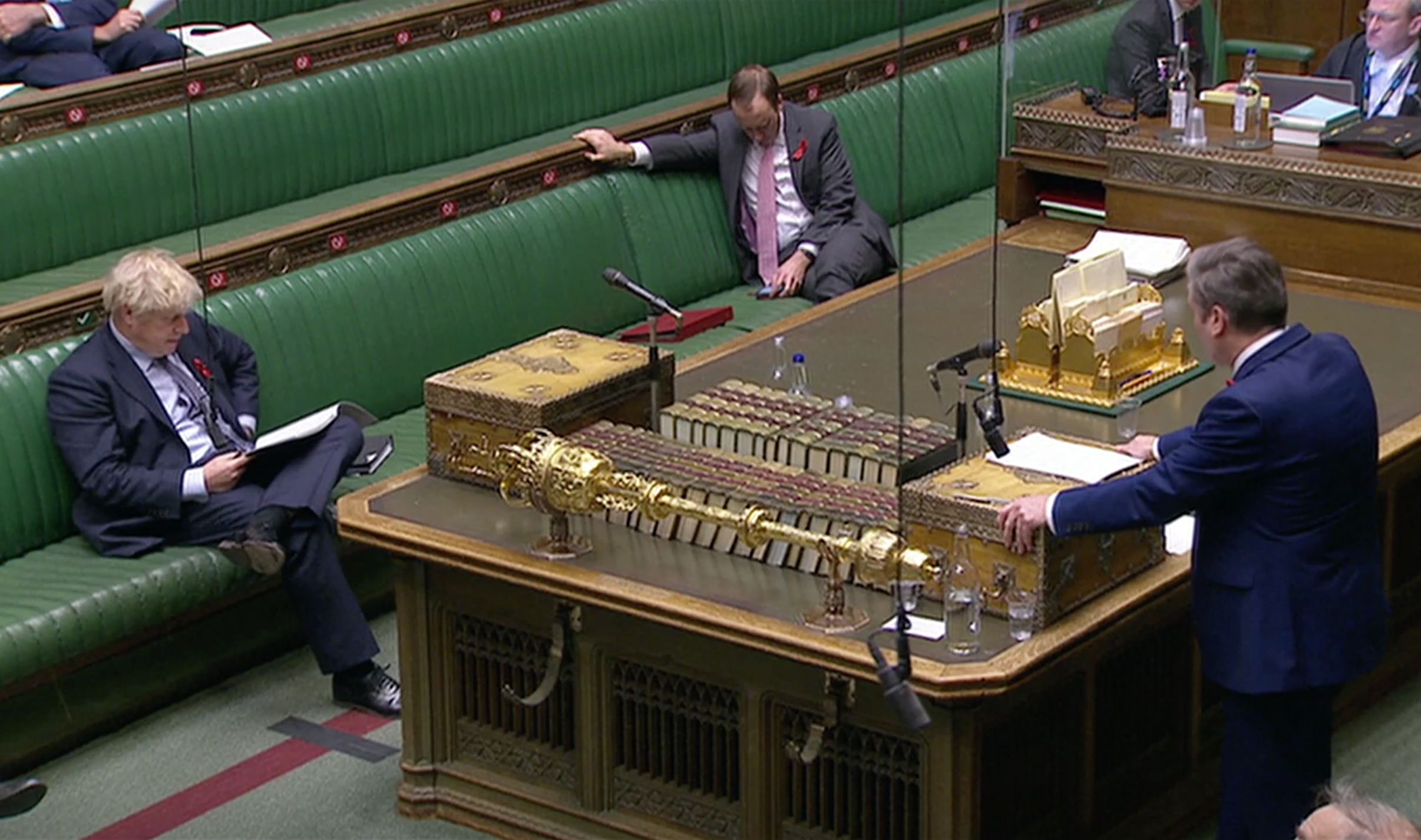Keir Starmer is trying to be too clever by abstaining on the Covid tiers vote
Labour MPs were instructed to sit on their hands while Conservatives voted to pass the new coronavirus regulations that come into effect this week, writes John Rentoul


The big difference between last night and the vote on the second lockdown was not the size of the Conservative rebellion, but that Labour failed to vote on the new coronavirus restrictions, either for or against.
Keir Starmer’s decision to order his MPs to abstain provoked the prime minister to express theatrical puzzlement – “it seems extraordinary to me” – but it was indeed not clear what the Labour leader hoped to gain by the device of sitting on his hands.
The question of whether to abstain may seem an obscure one of parliamentary procedure, but it can be significant. In this case it allows Starmer more freedom to criticise Boris Johnson’s government, especially if, as he seems to think will happen, the tiers fail to control the virus and further restrictions turn out to be needed.
But it could also affect how the voters see Starmer’s leadership. After eight months as leader he has something precious, which is a net positive opinion poll rating and an air of competence. The verdict of the voters might be that he is dull but that he seems to know what he is doing.
The trouble with abstaining is that it is by definition admitting that you don’t know what to do, and it risks undermining the beginnings of a reputation for decisiveness that Starmer earned by sacking Rebecca Long-Bailey and keeping Jeremy Corbyn out of the Parliamentary Labour Party.
These are internal party matters, but they are one of the few ways a leader of the opposition can define themselves. Tony Blair did it by rewriting the party’s constitution; Corbyn did it by standing firm in the face of overwhelming opposition from Labour MPs.
Parliamentary tactics provide another way of telling voters what kind of leader you are and what kind of party you lead. Most Labour MPs were never going to vote against the tiers regulations, so there was never any chance that the government might be defeated. The choice was to support the rules, even if Labour didn’t think they were adequate – or to abstain.
Abstaining not only undermines Starmer’s reputation for decisiveness, it makes it look as if he is playing games. Some Labour people suggested that one of the reasons for abstaining was to focus attention on divisions among the Conservatives. If so, that was a poor calculation: it looks tactical, and it didn’t work, because many of the reports thought the decision to abstain was more newsworthy than speculation about which Tory MPs might rebel this time.
It was clear in the debate that there would be more Tory MPs voting against the government than last time – not least because some of them represent areas that are in tier three that feel hard done by. Damian Green and Jeremy Wright, both cabinet ministers in Theresa May’s government, said they would vote against the government this time, having supported it before. In the end, more than 50 Tories rebelled, as against 34 last time.
But beyond such nimbyism, few new arguments were advanced. The best contribution came from seasoned rebel William Wragg, the Tory MP for Hazel Grove, who is a consistent opponent of coronavirus restrictions but insists he is not a conspiracy theorist: “Many people have been in touch with me advancing all kinds of wild conspiracy theories about Covid. I will have no truck with them whatsoever. There’s no conspiracy. In my brief experience of it, the British state has never been competent enough to mount such a conspiracy. And if it were so, plans for that would have leaked already.”
So the novelty last night was Labour’s position. Starmer seemed to think that he could move further away from “constructive opposition” because he had been proved right on the second lockdown, having called for a “circuit breaker” 18 days before Johnson was forced to announce it.
But the Labour leader should beware being too clever by half by abstaining. Starmer may have to abstain on a more important, historic vote that is coming up, on an EU trade deal. His outrider, Rachel Reeves (the shadow Cabinet Office minister), has been preparing the ground for Labour to vote for the deal, if it is agreed in the next few days, because Starmer does not want to look as if he is still trying to block Brexit.
Yet it might be that Labour MPs should have voted for the coronavirus regulations, with which they agree in principle, last night, and saved their abstention for the EU trade deal, so that they can criticise the poor terms that the prime minister is almost certain to agree.
Subscribe to Independent Premium to bookmark this article
Want to bookmark your favourite articles and stories to read or reference later? Start your Independent Premium subscription today.




Join our commenting forum
Join thought-provoking conversations, follow other Independent readers and see their replies
Comments